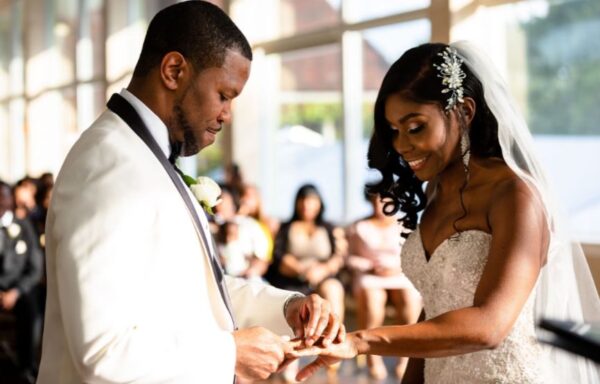Lifestyle
How to avoid toxic perfectionism when planning a wedding

Avoiding toxic perfectionism when planning a wedding is crucial for your mental and emotional well-being.
The pressure to create a flawless event can be overwhelming, but with the right mindset and strategies, you can plan a beautiful wedding without succumbing to toxic perfectionism.
Here are some tips to help you:
- Set realistic expectations: Understand that perfection is subjective, and there’s no such thing as a perfect wedding. Recognize that minor imperfections are part of any event and can even add character.
- Define your priorities: Identify the aspects of your wedding that are most important to you and your partner. Focus on these elements and be willing to compromise on others.
- Create a budget: Set a budget and stick to it. This can help prevent overspending on unnecessary details that may not significantly impact the overall experience.
- Delegate responsibilities: You don’t have to do everything on your own. Enlist the help of family, friends, or a wedding planner to share the workload. Trust others to handle certain tasks.
- Time management: Start planning well in advance to avoid last-minute stress. A longer timeline can give you the flexibility to make decisions calmly and avoid rushed choices.
- Embrace imperfections: Understand that not everything will go according to plan, and that’s okay. Embrace the imperfections as part of your unique wedding story.
- Practice self-care: Take breaks and engage in activities that relax you. Whether it’s yoga, meditation, exercise, or simply a quiet walk, self-care is essential during the planning process.
- Stay mindful and grateful: Regularly remind yourself why you’re getting married and the significance of the day. Gratitude can help shift your focus away from perfectionism.
- Set boundaries: Be clear with family and friends about your boundaries and what you expect from them. This can prevent external pressure from contributing to perfectionism.
- Use technology wisely: While technology can help in planning, it can also lead to excessive comparison and unrealistic expectations. Use it mindfully and avoid the trap of comparing your wedding to others you see on social media.
- Learn to say no: It’s okay to decline certain requests or suggestions that don’t align with your vision. Polite but firm responses can help you maintain control over your wedding planning.
- Celebrate small wins: Acknowledge and celebrate the small achievements along the way. This will help you stay motivated and positive throughout the planning process.
- Seek professional help if needed: If your perfectionism is causing significant distress, consider talking to a therapist or counselor who can help you manage your anxiety and perfectionist tendencies.
Remember that a wedding is a celebration of love and commitment, and it should reflect your personalities and values. It’s okay to aim for a beautiful and memorable day, but it’s equally important to prioritize your well-being and happiness throughout the process.











